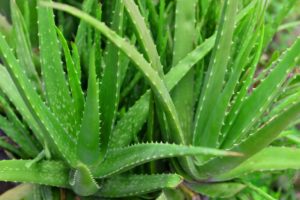
Why Take Iron and Folic Acid During Pregnancy?
Iron and folic acid are essential during pregnancy for the health of both the mother and the baby.
✅ Iron:
- Helps in the production of hemoglobin, preventing anemia.
- Supports oxygen supply to the baby.
- Reduces the risk of preterm birth and low birth weight.
✅ Folic Acid (Vitamin B9):
- Crucial for neural tube development, preventing birth defects like spina bifida.
- Aids in DNA synthesis and red blood cell formation.
- Supports rapid cell growth and placenta development.
How to Take Iron and Folic Acid During Pregnancy?
Iron:
- Dosage: Usually 27 mg daily (as per doctor’s advice).
- Best Time: Take on an empty stomach or with vitamin C (like orange juice) to enhance absorption.
- Avoid: Dairy, tea, coffee, and calcium supplements within 1-2 hours of taking iron, as they hinder absorption.
- Common Side Effects: Constipation, nausea (can be reduced by taking iron with food if needed).
Folic Acid:
- Dosage: 400-600 mcg daily before and during pregnancy.
- Best Time: Any time of the day, with or without food.
- Sources: Found in leafy greens, beans, citrus fruits, and fortified cereals.
The first three months of pregnancy (first trimester) are crucial for the baby’s development. Here’s a list of things to do during this period:
1. Confirm Pregnancy & Start Prenatal Care
✅ Take a home pregnancy test and visit a doctor for confirmation.
✅ Schedule your first prenatal appointment.
✅ Start taking prenatal vitamins (with folic acid & iron).
2. Focus on Nutrition & Hydration
Eat a balanced diet rich in protein, calcium, and fiber.
Drink plenty of water to stay hydrated.
Avoid raw seafood, unpasteurized dairy, caffeine (limit to 200 mg/day), and alcohol.
3. Manage Symptoms
Morning Sickness: Eat small, frequent meals and avoid strong odors.
Fatigue: Get enough rest and take short naps if needed.
Constipation: Increase fiber intake and drink more fluids.
4. Stay Active & Maintain a Healthy Lifestyle
♀️ Engage in light exercise like walking or prenatal yoga.
Avoid smoking, alcohol, and excessive stress.
Get enough sleep and practice relaxation techniques.
5. Educate Yourself & Plan Ahead
Read about pregnancy stages and fetal development.
Start thinking about baby names, nursery setup, and maternity leave.
6. Discuss with Your Doctor
Check for any pre-existing health conditions.
Get necessary vaccinations and prenatal tests.
Schedule regular checkups and ultrasound scans.
7. Emotional & Mental Well-being
Share the news with close family & friends when you feel ready.
♀️ Practice stress management techniques like meditation or journaling.
Communicate with your partner about changes and expectations.
Taking care of yourself in the first trimester sets the foundation for a healthy pregnancy.
Healthy Food List for Pregnant Mothers
A well-balanced diet during pregnancy is essential for the baby’s growth and the mother’s health. Here’s a list of foods to include:
1. Nutrient-Rich Foods
✅ Folic Acid-Rich Foods (Prevents birth defects)
- Leafy greens (spinach, kale, lettuce)
- Lentils, beans, peas
- Citrus fruits (oranges, lemons)
- Fortified cereals & whole grains
✅ Iron-Rich Foods (Prevents anemia)
- Lean meats (chicken, beef)
- Fish (low in mercury, e.g., salmon)
- Eggs
- Dark leafy greens
- Nuts and seeds (pumpkin seeds, almonds)
✅ Calcium & Vitamin D Foods (For strong bones & teeth)
- Dairy (milk, yogurt, cheese)
- Fortified plant-based milk (soy, almond)
- Tofu
- Sardines, salmon
- Eggs
✅ Protein-Rich Foods (Supports baby’s growth)
- Lean meats and poultry
- Fish (low mercury)
- Dairy products
- Nuts, seeds, and beans
- Tofu and soy products
✅ Healthy Fats (Supports brain development)
- Avocados
- Nuts (walnuts, almonds)
- Seeds (chia, flaxseeds)
- Olive oil
- Fatty fish (salmon, sardines)
2. Healthy Snacks
- Fresh fruits (banana, apple, berries)
- Yogurt with nuts
- Whole grain crackers with cheese
- Boiled eggs
- Hummus with veggies
Foods to Avoid
❌ Raw or undercooked seafood, meat, and eggs (risk of infections)
❌ Unpasteurized dairy & soft cheeses (risk of listeria)
❌ High-mercury fish (shark, swordfish, king mackerel)
❌ Excess caffeine (limit to 200 mg/day)
❌ Alcohol & smoking
Eating a variety of these foods will keep you and your baby healthy!
A mother’s diet during pregnancy plays a significant role in a baby’s brain development. Here are some brain-boosting foods that can support intelligence, memory, and cognitive skills in the baby:
Brain-Boosting Foods for an Intelligent Baby
1️⃣ Omega-3 Fatty Acids (For Brain & Nervous System Development)
✅ Fatty fish (salmon, sardines, trout, mackerel – low mercury)
✅ Chia seeds, flaxseeds, walnuts
✅ Avocados
✅ Eggs (especially those fortified with DHA)
2️⃣ Protein-Rich Foods (For Brain Growth & Neurotransmitters)
✅ Lean meats (chicken, turkey)
✅ Dairy products (milk, yogurt, cheese)
✅ Beans, lentils, tofu
✅ Eggs
3️⃣ Folic Acid (For Neural Tube & Brain Development)
✅ Leafy greens (spinach, kale, lettuce)
✅ Lentils, beans, peas
✅ Fortified cereals and whole grains
✅ Citrus fruits (oranges, lemons)
4️⃣ Iron-Rich Foods (For Oxygen Supply to the Brain)
✅ Lean red meat, chicken, fish
✅ Dark leafy greens (spinach, broccoli)
✅ Beans, lentils
✅ Pumpkin seeds
✅ Fortified cereals
5️⃣ Vitamin D & Calcium (For Brain & Bone Health)
✅ Dairy products (milk, cheese, yogurt)
✅ Eggs
✅ Fortified plant-based milk (soy, almond)
✅ Tofu
✅ Mushrooms
✅ Sunlight exposure for natural Vitamin D
6️⃣ Antioxidant-Rich Foods (For Protecting Brain Cells)
✅ Berries (blueberries, strawberries, raspberries)
✅ Nuts (almonds, walnuts, cashews)
✅ Dark chocolate (in moderation)
✅ Green tea (limit intake due to caffeine)
7️⃣ Choline (For Memory & Learning Abilities)
✅ Eggs (especially yolk)
✅ Lean meats
✅ Dairy products
✅ Peanuts
Overall Diet Tips for a Smart Baby
Eat a balanced diet rich in vitamins, minerals, and healthy fats.
Drink plenty of water to stay hydrated.
Avoid processed foods, excessive sugar, and junk food.
Limit caffeine to 200 mg/day.
Avoid alcohol & smoking as they can harm brain development.
Eating these nutrient-dense foods can help your baby develop a sharp mind, strong memory, and better cognitive skills! ✨
Fruits to Avoid During Pregnancy
While most fruits are healthy, some can be harmful during pregnancy due to their effects on the body.
1️⃣ Papaya (Especially Unripe or Semi-Ripe)
- Contains latex, which can trigger uterine contractions and lead to miscarriage or preterm labor.
- Fully ripe papaya in small amounts is considered safe, but best to avoid unripe or semi-ripe ones.
2️⃣ Pineapple
- Contains bromelain, which can soften the cervix and increase the risk of early labor.
- Eating large amounts in early pregnancy may cause complications.
3️⃣ Grapes (Especially Black Grapes)
- Can generate excess heat in the body, which is not good during pregnancy.
- Some grapes may have pesticide residues that are hard to remove.
- Best to consume in moderation or avoid during the last trimester.
4️⃣ Excessive Watermelon
- Can flush out essential nutrients along with toxins.
- May cause gestational diabetes due to high sugar content.
5️⃣ Frozen or Canned Fruits
- Often contain preservatives and added sugar, which are not healthy for the baby.
✅ Fruits to Eat Regularly During Pregnancy
These fruits provide essential vitamins, minerals, and antioxidants that support a healthy pregnancy and baby’s development.
1️⃣ Bananas
- Rich in potassium, helps prevent leg cramps and morning sickness.
- A great energy booster.
2️⃣ Oranges & Citrus Fruits
- High in vitamin C, which boosts immunity and helps in iron absorption.
- Prevents dehydration and improves skin health.
3️⃣ Apples
- Contains fiber, vitamins A & C, and boosts digestion.
- May improve baby’s lung health if eaten regularly.
4️⃣ Berries (Blueberries, Strawberries, Raspberries)
- Loaded with antioxidants, folate, and vitamin C for baby’s brain development.
- Helps reduce inflammation and improves digestion.
5️⃣ Avocados
- Rich in healthy fats, folate, and vitamin E, which aid brain development.
- Helps in reducing morning sickness.
6️⃣ Pomegranates
- High in iron and vitamin K, helps prevent anemia.
- Strengthens baby’s bones and boosts blood circulation.
7️⃣ Mangoes
- High in vitamin A and C, supports fetal development.
- Eat in moderation to avoid excessive sugar intake.
8️⃣ Pears
- Good source of fiber, potassium, and folic acid.
- Helps maintain heart health and digestion.
Quick Tips
✅ Wash all fruits thoroughly to remove pesticides and bacteria.
✅ Eat in moderation to maintain a balanced diet.
✅ Avoid unripe or processed fruits that may contain harmful substances.
A well-balanced fruit intake can help ensure a healthy pregnancy and a strong baby!



 DailyMediCure
DailyMediCure 













p862jc